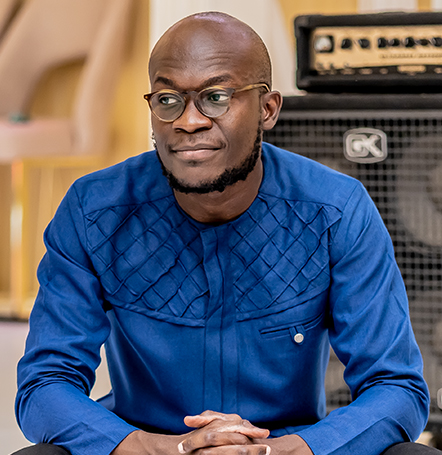Dissecting the Power of Western Beauty Standards in Africa: An Interview with Kwaku Agyekum Sikahene-Adarkwa
Western beauty standards are still the norm, even on a continent as diverse as Africa. In his short documentary, ‘Crown or Class‘, director Kwaku Agyekum Sikahene-Adarkwa investigates why that is. The film aims to highlight profound societal pressures that influence popular perceptions of beauty and their impact on African womens’ identity and self-expression. Sikahene-Adarkwa spoke to Afropean about the beauty ideals in Africa, the creative process behind the documentary and how this piece of work can enlighten global audiences interested in beauty as a social construct.
AP: How would you describe the conventional idea of beauty in Africa nowadays?
KAS: Well, I might be wrong. The idea of beauty in Africa is super diverse and depends on culture, globalisation, and where you are. But globalisation and Western ideals are playing a big role on how beauty is perceived. We see slimmer body ideals, fitness lifestyles, and makeup and hair trends through Western media, but people still mix them with their own local preferences. Each of these things has its good and bad sides.
AP: What role does the media play?
KAS: In the contemporary era, the proliferation of digital platforms, television, social media, and advertising has transformed the media into a potent force in shaping and influencing perceptions of beauty across the African continent. These media platforms frequently promote Eurocentric beauty ideals, such as lighter skin tones, slender body types, and straight hair. This influence is particularly evident in global advertising campaigns, films, and beauty pageants, which can overshadow traditional African aesthetics. For example, during my childhood in Africa, even the children’s content we consumed inadvertently influenced our worldview. I cannot recall encountering any African-centric cartoons or content, resulting in my complete exposure to Western ideals.
AP: What was your main motivation for creating this documentary?
KAS: As a director and filmmaker, I find myself at a crossroads, torn between two worlds. The women in my life – my mother, aunties, sister and sisters-in-law, wife, daughter, nephews, nieces, even friends – each embody this duality.
Some proudly wear their natural kinky hair, while others choose straight or curly wigs, navigating their own paths in a society that subconsciously often dictates how they should look to be deemed beautiful. This documentary is my attempt to understand this dichotomy, to give voice to the stories of African women as they navigate their choices, and to reconcile my own feelings about the pressures and expectations surrounding beauty in our modern world

AP: What type of audience are you hoping Crown or Class will reach?
KAS: This documentary is intended for a global audience, particularly those interested in cultural identity, beauty standards, and social justice. It will resonate with African women, the diaspora, and anyone invested in understanding and challenging the constructs of beauty and identity. Hopefully, it will educate the much younger generation of women to embrace their natural African hair.
AP: Tell us a little about the creative process – how did you find people to interview and what elements are key in your visual storytelling?
KAS: We have a substantial pool of resource personnel we plan to interview in Europe, mostly in Belgium and Africa (Ghana). This group encompasses historians, sociologists, wholesalers and retailers of human and synthetic hair, beauticians specialising in natural hair, human and synthetic hair at salons, hair care professionals, and African women who proudly wear their natural hair or opt for wigs and weaves. Their perspectives will provide a comprehensive understanding of choice, opinion, and identity.
In Europe, the team of producers and myself have successfully identified most of these individuals through their network of friends and family. Additionally, we have formed a partnership with the Ghana Council of Belgium, whose executives are enthusiastic about the film and are assisting us in locating key personnel within the African community, not limited to Ghanaians.
In Ghana, we have initiated conversations and secured the participation of several individuals from the education sector to discuss the ongoing prohibition of young girls’ hair growth in the education system, even after the colonial era. The list of potential interviewees is extensive, and these are just a few examples.
AP: What was your biggest challenge whilst working on this documentary?
KAS: At present, securing funding for the film stands as our most significant challenge. As we remain in the pre-production phase, we are actively pursuing various film grants and establishing a crowdfunding campaign. The administrative tasks associated with meeting the requirements are substantial and demanding. Nevertheless, we have received encouraging indications of potential funding, and we remain optimistic about the outcome.
AP: When and on which platforms will people be able to see it?
KAS: We are currently engaged in negotiations with our film production and distribution partner. We are making every effort to secure agreements that would ensure the film’s availability on major streaming platforms. Additionally, we are targeting prominent film festivals such as the Cannes Film Festival in France and the Africa International Film Festival (AFIFF), among others. Finally, we intend to have the film featured on the in-flight entertainment systems of various airlines, thereby increasing its exposure upon completion.
Click here to donate to the fundraiser.
Visit the Crown or Class website for more information on how you can support the project.




